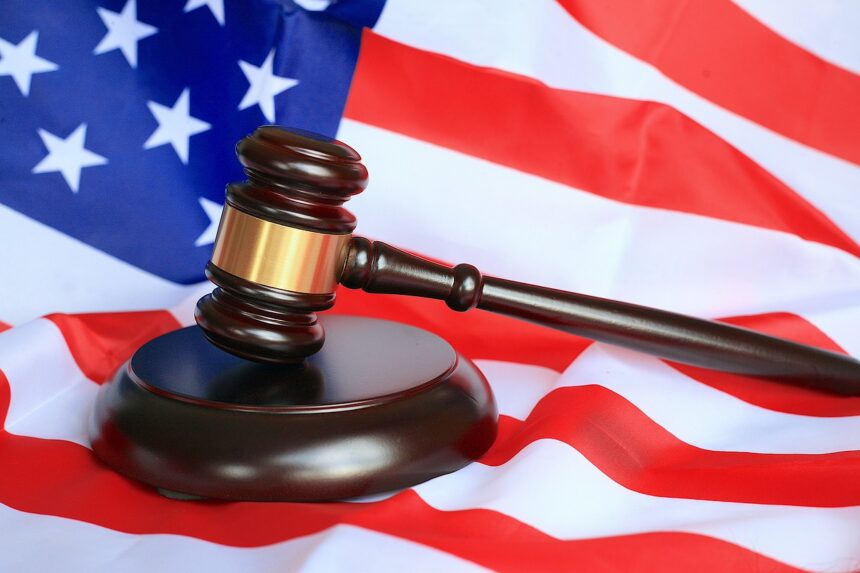Medical debt is a very serious problem that affects millions of Americans. The Kaiser Family Foundation reports that 51% of Americans have at least some medical debt.
There are a variety of reasons that people have unpaid medical bills. One of the biggest reasons is that they have catastrophic injuries, which can be very expensive to treat.
If you have suffered from a catastrophic injury, then you will need find a way to cover your medical debts. Fortunately, many people have an easier time after filing a lawsuit. They may get a settlement that will cover the debt. We talked about how lawsuits can cover medical bills from car accidents, but they can help with other catastrophic injuries too.
Catastrophic injuries fundamentally alter lives. These devastating injuries often result from serious accidents, leaving victims with permanent disabilities, chronic pain, and a lifetime of medical treatments and extensive care. The impact extends beyond physical suffering, causing profound financial strain and emotional turmoil for both victims and their families. In the aftermath of such a life-changing event, navigating the legal system can feel overwhelming.
However, pursuing a legal claim is often crucial to secure the compensation necessary to address the immense challenges these injuries create. Understanding relevant laws and seeking experienced legal representation, like from a skilled personal injury lawyer, are essential for protecting your rights and building a strong case.
What Makes Catastrophic Injury Cases Different? Can They Help With Medical Bills?
Catastrophic injury cases stand apart from typical personal injury claims due to the profound severity and lifelong consequences of the injuries sustained. These cases often involve significant medical expenses, extending far beyond immediate treatment needs. Victims may require ongoing therapies, rehabilitation, modifications to their homes, specialized equipment, and potentially even in-home care for the rest of their lives. Additionally, catastrophic injuries frequently result in permanent impairments that profoundly affect a person’s earning capacity, resulting in a lifetime of lost income or complete inability to work.
Beyond the immediate and overwhelming financial hardships, these injuries often inflict life-altering emotional and psychological trauma. To make matters more difficult, some people suffer from invisible injuries, which can have even more complicated problems.
The impact ripples through every aspect of the victim’s life and the lives of their loved ones. Navigating these complex cases demands meticulous investigation, collaboration with medical and financial experts, and the ability to present a comprehensive picture of how the injury impacts every facet of the victim’s future well-being.
Proving Negligence in Catastrophic Injury Cases
In most catastrophic injury cases, the legal foundation rests on the concept of negligence. To prevail, a victim must prove that another party’s careless or reckless actions were the direct cause of their injuries.
This involves demonstrating four elements:
- The defendant had a duty of care;
- They breached that duty;
- Their breach caused your injuries;
- You suffered damages as a result.
Due to the high stakes in catastrophic injury cases, establishing negligence requires meticulous investigation, gathering of evidence, and, frequently, expert witness testimony.
Finding the Right Catastrophic Injury Lawyer
Given the complexities of these cases, finding a lawyer with specialized experience in catastrophic injury law is crucial. Look for an attorney with a demonstrated track record of success in securing substantial settlements or verdicts for clients with similar injuries. They should have the resources to thoroughly investigate your case, potentially hire medical experts, and handle the demands of potentially lengthy litigation. It’s often beneficial to seek a personal injury lawyer, or one well-versed in the laws of your locality, as specific laws and regulations can vary. During consultations, ask about their approach to client communication and their philosophy on building a strong case. The right attorney will not only possess the legal expertise but also provide compassionate support throughout the process.
The Legal Process: What to Expect
The legal process in catastrophic injury cases can be lengthy and emotionally draining. Your attorney will begin by conducting a thorough investigation, gathering evidence like medical records, accident reports, and witness statements. They will then file a lawsuit on your behalf.
The next phase, known as discovery, involves both sides exchanging information relevant to the case, which may include depositions (formal sworn testimony). Settlement negotiations often occur throughout the process, and your lawyer will advise you on the merits of any offers. If a fair settlement cannot be reached, the case may proceed to trial, where a judge or jury will decide the outcome.
Your lawyer’s role is to guide you through each of these stages, explaining the complexities, preparing you for potential stressful situations, and advocating fiercely for your best interests every step of the way. It’s important to remember that while pursuing legal action is vital, it can also reopen emotional wounds and relieve aspects of the trauma. Choose an attorney who is both legally astute and compassionate, ensuring you feel understood and supported throughout this arduous journey.
Conclusion
Navigating the legal landscape after a catastrophic injury is a daunting undertaking. These are inherently complex cases requiring significant time, legal expertise, and resources to achieve a just outcome. Securing the maximum compensation possible is vital, considering the lifelong challenges victims often face. Don’t delay in seeking legal counsel. Taking swift action empowers you to understand your rights and options for navigating the road ahead. The right attorney will not only fight for the compensation you deserve but also provide invaluable support and guidance on this emotionally challenging journey. Remember, while the legal process may seem overwhelming, you don’t have to face it alone. A skilled lawyer will advocate for you, allowing you to focus on your recovery and rebuilding your life.







